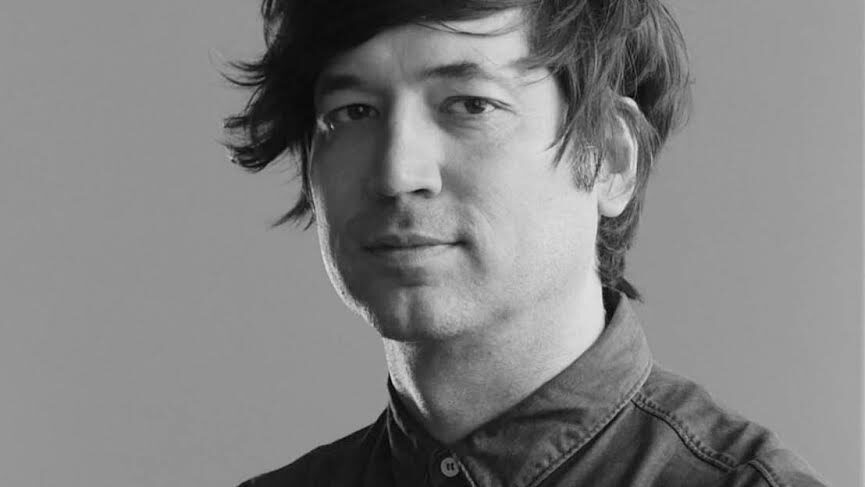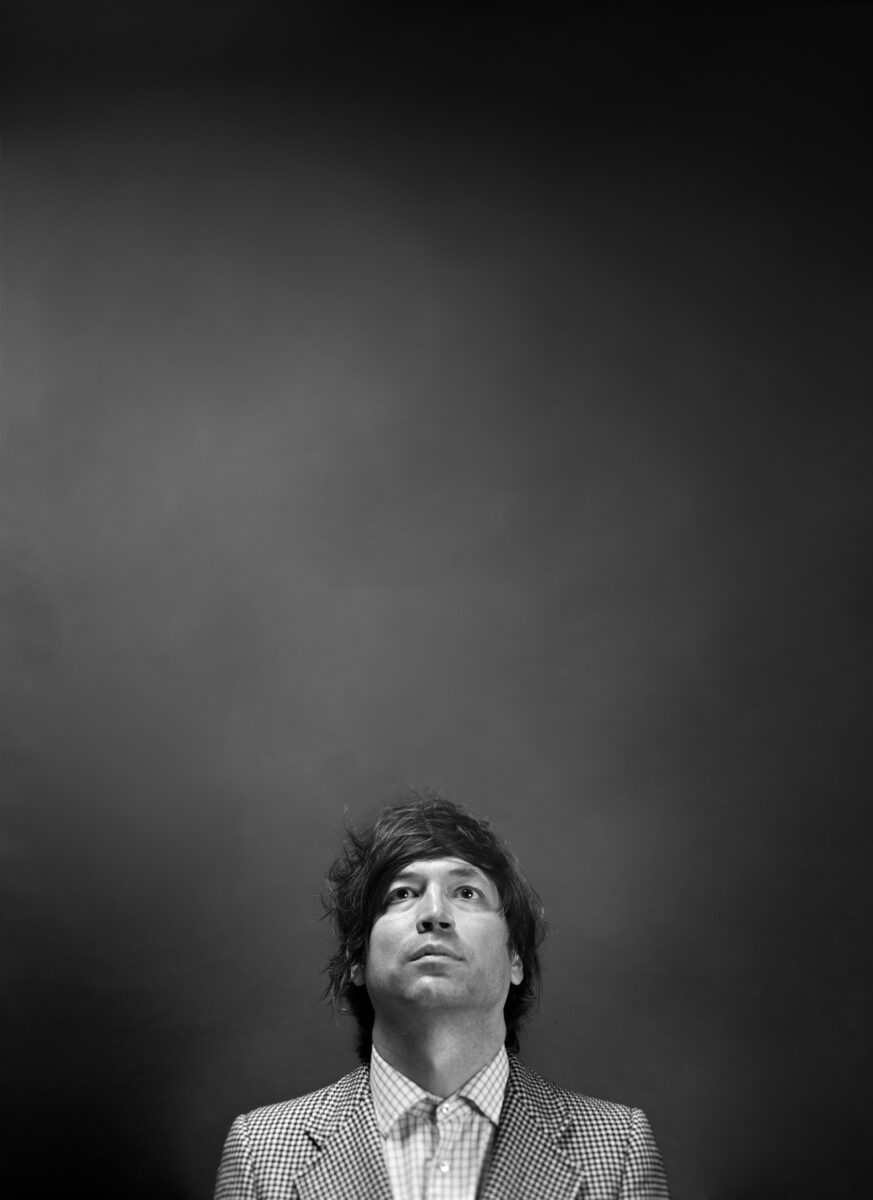
Confessions of a Box Man is Mika Johnson ‘s first feature film. It is a story about obsessions with a cuboid or a box and perverse desires that dehumanize us. It is also a story about escape and freedom. Mika delves into why he mixes documentary and fiction film techniques, the inspiration behind the story, and his ultimate desire to build mythologies.
indieactivity: Hey Mika, tell us about your film, and what it says about the world we live in?
Mika Johnson (MJ): I think Confessions of a Box Man says a lot about our world, in a troubling way, as the news is filled with stories about men whose desires distort their basic humanness. Why this happens is complicated. On the one hand, it relates to men’s power, which has gone on almost unchecked. But I think consumerism, which surrounds us with sexual imagery so we’ll buy stuff, along with the porn and sex industries, also play a part; and as new technologies arise to satisfy male desire, I imagine human sexuality will morph even further into places hard to even imagine. Confessions of a Box Man playfully challenges us to question these things, as it presents a world in which none of the sexual desires that manifest are natural, Catholic priests being the archetype.
What universal themes are explored in your film?
Mika Johnson (MJ): If there is a universal theme in Confessions of a Box Man it is obsessions. People obsess about almost everything: cleanliness, grammar, food, politics, pets, clothing, social media, etc.; and two of our biggest obsessions are sex and identity. Unable to live with their identities, the Box Men withdraw from society. However, while drawn to the isolation and anonymousness of life inside a cardboard box, they also mutate, which creates new obsessions, in this case with women’s legs. To this end, the dual obsessions of sex and identity arise and repeat throughout the film. The second theme explored is the mystery of all life or the idea that any truth on who or what we are is unattainable. By creating mythologies and imagining the box as a spiritual vehicle, Confessions of Box Man questions the ways in which we invent meaning.

Briefly describe the appeal you think your film will have for audiences (and why)?
MJ: I think the appeal of Confessions of a Box Man is that it’s a strange, surreal, and absurd satire on our world which will also make audiences laugh. While mainly about the follies of men, the film also interconnects a lot of serious narrative threads, for example, the rise of sexually repressive regimes, like Nazi Germany, the erotic history of legs, the invention of corrugated cardboard boxes, and spirituality. In this way, Confessions of a Box Man reaches a density of meaning which forces each viewer to co-author their own way through the film, as there is no correct interpretation.
How do you work with actors?
MJ: I can’t say I have a specific method but I prefer to work with actors, professional or non-professional, in ways that break conventions with psychological realism (Stanislavsky, Method, etc.). To this end, I’m attracted to projects where the story, characters, real people, themes, and shooting situations merge, real-time, into something unique and ideally unhindered by conventions (a tightly written script, backstory, scene objectives, etc.). In short, I like to experiment.
How did you come up with the idea for Confessions of a Box Man?
MJ: When I first read Kobo Abe’s novel The Box Man, I found the book one of the most original and imaginative stories I’d ever read. Later, while teaching documentary filmmaking, I reread the book and couldn’t help but muse on what an anthropology of these Box Men might be. I imagined episodes on the box in human history, religion, and western art alongside theoretical proposals on how the Box Men’s unique predicament might alter their identity, rituals, and sexual practices. Thanks to a teaching job, I had access to free film equipment. I was also surrounded by talented students eager to volunteer.
The Official Trailer for Confessions of a Box Man by Mika Johnson
After meeting some of the key actors—Marek Zelinka, Mantas Ceskauskas, Ozcar Burfitt, and David Woodard—the time felt right to make the film. Woodard, for example, not only co-authored his own role but also expanded on the Box Man’s mythos, contributing additional concepts and stories that are now integral to the rest of the film. In a certain sense, the entire script and shooting style evolved that way, at each stage, in part because there was no real budget nor any shooting schedule or deadline. Nor was there a producer. Instead, we simply made the film when and how we could, experimenting at each step of the way.
If you had to do it over again, what would you do differently?
MJ: It would have been nice to have a budget and set producer but we didn’t. At the same time, I had free equipment thanks to my teaching job at a film school and actors and students who volunteered as cast and crew. So hard to complain in retrospect, especially since this unique situation gave me the opportunity to direct outside the box so to speak. Thankfully, I did receive some finishing funds.
Who are your influences?
MJ: Different directors inspire me for different reasons. When it comes to the ways in which a director can use a project to raise a series of personal questions, I am inspired by the films of David Lynch, Lars von Trier, and Andrei Tarkovsky. In terms of performance, I admire those directors who work with their actors to generate new worlds, unique to the presence of the actors’ performances. These include performances by actors in the films of Wes Anderson, Yorgos Lanthimos, Jim Jarmusch, Aki Kaurismak, and Ulrich Seidl.

How does your film primarily differentiate or distinguish itself from other work?
MJ: I think the collaboration between myself, Sound Designer Eli Stine, and Composer Ryan Lester distinguishes Confessions of a Box Man from other films. As a trio, we worked as equals in post-production, spending one year experimenting with the ways that sound and music could amplify the themes in the film and weave together all the fictional and documentary elements. So while the film’s structure remained very experimental, it nevertheless achieved great unity thanks to this process.
Can you tell us more about your upcoming project(s)?
MJ: I am presently working with writer Aaron Labaree on a feature film titled Kafka’s Son, which follows a graduate student whose obsession with the idea that Franz Kafka had offspring puts him on a road-trip across Eastern Europe, where he attempts to track down the author’s last living heir. Another feature, The Secret of O (or O), echoes the structure of Confessions of a Box Man, only the focus is the circle. That film is part II of a trilogy. The story follows K Gray: a depressed drug dealer, in his forties, who is hired to solve the murder of a pharmaceutical genius who seems to have created the key to cosmic consciousness, in the form of a pill that can’t be reproduced. It’s a psychedelic neo-noir, with accompanying micro-documentaries throughout.
Tell us what you think of the interview with Mika Johnson What do you think of it? What ideas did you get? Do you have any suggestions? Or did it help you? Let’s have your comments below and/or on Facebook or Instagram! Or join me on Twitter.
Follow Mika Johnson on Social Media
Website
IMDb
LinkedIn
Instagram
Vimeo
Richard Green Documentary, ‘I Know Catherine, The Log Lady’: Premiere in NYC, LA May 9th
Lynchian Doc I Know Catherine, The Log Lady Makes Hollywood Premiere 4/17, Rollout to Follow
In Camera by Naqqash Khlalid Launch on VOD April 29
Naqqash Khlalid’s Directs Nabhan Rizwan. In Camera stars an EE BAFTA Rising Star Award Nominee.
2025 Philip K. Dick Sci-Fi Film Festival Award Winners Announced
Vanessa Ly’s Memories of the Future Awarded Best PKD Feature
Dreaming of You by Jack McCafferty Debuts VOD & DVD for April Release
Freestyle Acquires “Dreaming of You” for April 15th Release
Hello Stranger by Paul Raschid set for London Games Festival & BIFFF
The film Is set for an April 10th Premiere at The Genesis Cinema in London (LGF) and BIFFF
Daydreamers Official Trailer by Timothy Linh Bui: Released by Dark Star Pictures
Daydreamers Vietnamese Vampire Thriller – May 2nd release









